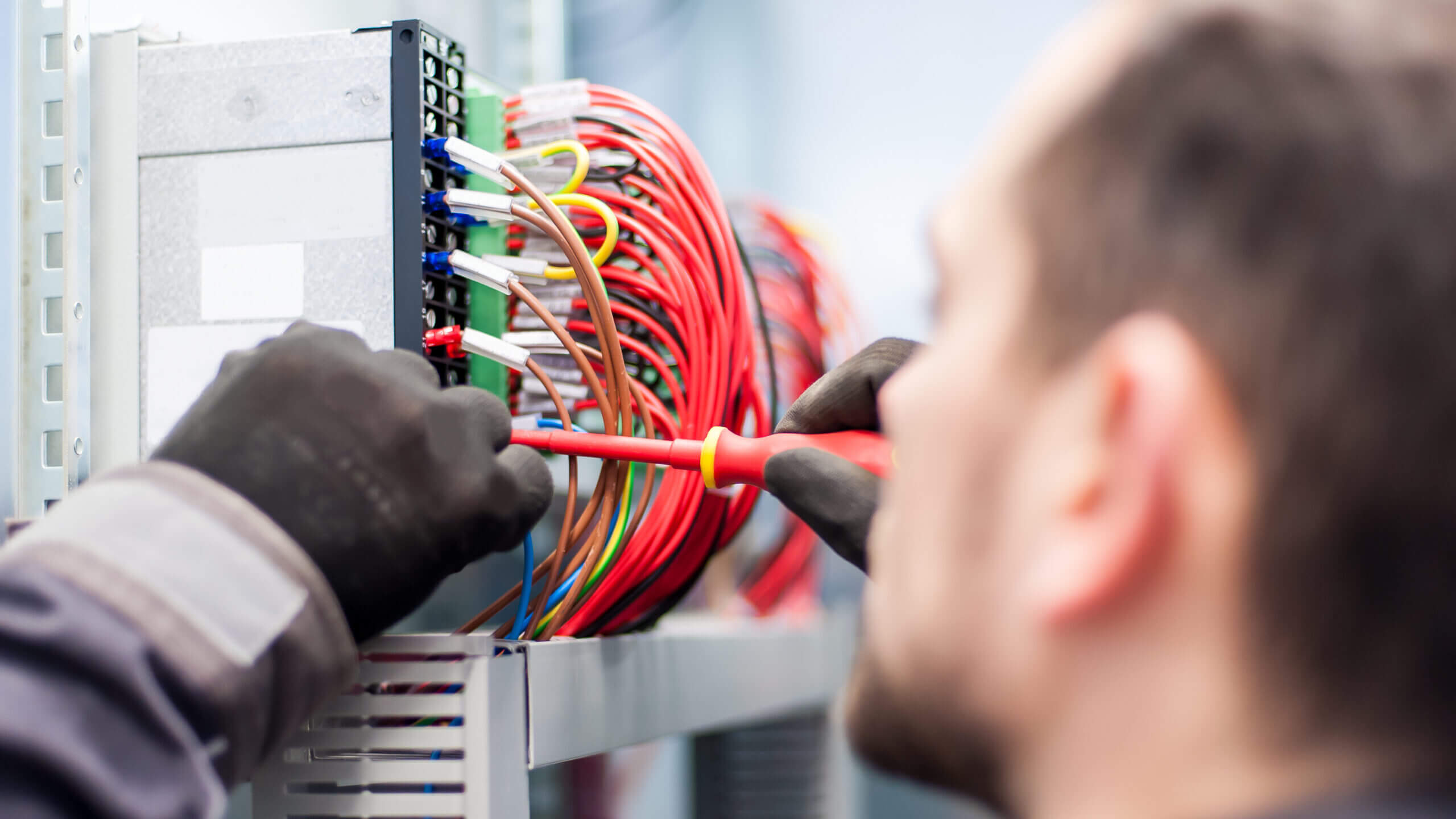Winter in Adelaide brings unique challenges, especially when maintaining a safe and efficient home. Electrical problems are common during this season. Knowing how to prevent electrical problems during winter is essential. It ensures safety, energy efficiency, and peace of mind. This blog explores effective strategies to keep your electrical system running smoothly all winter.
Understanding Common Electrical Problems in Winter
Before discussing prevention tips, it is vital to understand common winter electrical problems:
Power Outages: Snow, ice storms, and high winds can break power lines. This often leads to outages. Increased electricity demand also strains the grid during winter.
Tripped Circuit Breakers: Winter brings more electric heaters, holiday lights, and appliances. Overuse of these can overload circuits, causing breakers to trip.
Faulty Wiring and Outlets: Cold weather causes wiring to contract and expand. This can lead to loose connections or exposed wires, increasing the risk of fires.
Frozen Pipes Affecting Electrical Appliances: Frozen pipes may leak water onto electrical systems. This can cause short circuits or failures.
Overheating of Electrical Devices: Devices like space heaters and electric blankets can overheat. Incorrect use of these devices poses a significant risk.
Understanding these potential problems helps in taking proactive measures. Here are some essential steps to prevent electrical issues during winter.
1. Regular Electrical System Inspection
A professional electrical inspection is crucial for preventing winter problems. Certified electricians can identify outdated wiring, faulty circuits, or overloaded systems. Fixing these issues early prevents electrical failures and reduces fire risks.
Key Steps in an Electrical Inspection :
- Check for frayed or damaged wiring.
- Test circuit breakers and fuse boxes.
- Inspect outlets for loose connections or damage.
- Examine appliances for wear and tear.
Routine inspections help identify weak points in your electrical system. Addressing these issues can prevent costly winter breakdowns.
2. Avoid Overloading Circuits
Winter increases electricity demand due to heaters, lights, and decorations. Overloading circuits leads to tripped breakers and potential fires. Here are some preventive measures:
Distribute Electrical Load: Do not plug multiple high-energy appliances into the same circuit. Use different outlets to distribute the load evenly.
Use Surge Protectors: Protect your electronics from power surges. Surge protectors manage voltage spikes and prevent damage.
Upgrade Your Electrical Panel: Consider upgrading if your home is older or you’ve added appliances. This can handle increased loads more efficiently.
Properly managing electrical loads reduces overload risks. This helps prevent electrical problems during the colder months.
3. Install Ground Fault Circuit Interrupters (GFCIs)
GFCIs shut off circuits when they detect an imbalance. They help prevent electrical shocks and fires, especially in areas with water. Install GFCIs in kitchens, bathrooms, basements, and outdoor areas.
Benefits of GFCIs:
- Protection against electrical shock.
- Reduced risk of fires from ground faults.
- Essential in moisture-prone areas for safety.
Installing GFCIs in key areas is a proactive safety measure. It safeguards against potential electrical issues during winter.
4. Protect Outdoor Electrical Components
Winter weather is harsh on outdoor electrical systems. Snow, ice, and freezing temperatures can damage exposed wiring and cause shorts. Here’s how to protect outdoor components:
Install Weatherproof Covers: Use weatherproof outlet covers for outdoor outlets. This protects against snow and moisture.
Inspect and Seal Exposed Wires: Check outdoor wiring for wear and tear. Seal exposed wires with electrical tape or tubing to prevent damage.
Disconnect Unnecessary Outdoor Appliances: Disconnect garden lights, grills, or other appliances during winter. This minimizes unnecessary risks.
Caring for outdoor electrical components prevents unexpected issues. This also enhances safety during the colder months.
5. Maintain and Properly Use Heating Appliances
Heating appliances like space heaters and electric blankets are common in winter. However, improper use can lead to dangerous situations.
Follow Manufacturer Guidelines: Always follow the instructions provided with heating appliances. Improper use may lead to overheating or fire.
Keep Flammable Materials Away: Place heating appliances at least three feet from flammable items. This includes curtains, furniture, and blankets.
Regular Maintenance: Inspect heating devices regularly for wear and tear. Replace damaged appliances to avoid hazards.
Use Space Heaters with Automatic Shut-off: Choose heaters that shut off if they tip over. This feature reduces fire risks.
Proper use and maintenance of heating devices prevent electrical issues. It also keeps your home safe during winter.
6. Ensure Proper Insulation of Electrical Systems
Proper insulation prevents electrical problems in winter. Cold weather can cause wire contraction, leading to loose connections.
Insulate Electrical Outlets and Switches: Use foam gaskets or outlet sealers, especially on exterior walls. This prevents cold air from entering and reduces condensation risks.
Protect Exterior Wiring and Pipes: Insulate exterior wiring and pipes. This prevents freezing and possible electrical failures.
Seal Gaps and Cracks: Inspect for gaps around doors, windows, and outlets. Seal them with caulk or weather stripping to maintain indoor temperature.
Proper insulation protects your electrical system from freezing temperatures. It also helps keep your home warm.
7. Use Energy-Efficient Lighting and Appliances
Winter shortens daylight, increasing lighting and appliance use. Energy-efficient options reduce strain on your electrical system.
Switch to LED Bulbs: LED bulbs use less energy and produce less heat than incandescent bulbs. This reduces energy costs and overheating risks.
Choose Energy Star-Rated Appliances: Energy-efficient appliances consume less power. This lowers the chances of circuit overloads.
Install Timers for Outdoor Lights: Use timers or smart switches for holiday and outdoor lights. This reduces energy use and prevents circuit overloads.
Energy-efficient lighting and appliances maintain a safer, more efficient home. This is especially helpful during winter.
8. Educate Your Family About Electrical Safety
Educating your household on electrical safety is essential. Ensure everyone understands these basic rules:
Avoid Overloading Outlets: Explain the dangers of plugging too many devices into one outlet.
Keep Electrical Devices Away from Water: Highlight the importance of keeping devices away from water to avoid shocks.
Turn Off and Unplug Unused Devices: Encourage turning off and unplugging devices when not in use. This prevents overheating and reduces energy consumption.
Teaching electrical safety prevents accidents. It ensures everyone contributes to a safer environment.
9. Prepare for Power Outages
Winter storms can cause power outages. Preparation helps manage these situations safely.
Install a Backup Generator: A generator provides temporary power during outages. Professional installation prevents back-feeding and other hazards.
Keep Emergency Supplies: Have flashlights, batteries, candles, and blankets ready. Opt for battery-powered lights over open flames.
Unplug Sensitive Electronics: Unplug electronics during outages to avoid damage from surges.
Being prepared for outages ensures safety and efficiency. It also reduces stress during winter storms.
10. Seek Professional Help When Needed
Some electrical problems need professional attention. Don’t hesitate to call an electrician if you notice:
Frequent Circuit Breaker Trips: This signals a serious issue that needs urgent attention.
Burning Smell or Scorch Marks: These indicate overheating and potential fire. Turn off power and call a professional immediately.
Flickering Lights or Sparking Outlets: Faulty wiring or loose connections cause these issues. Professional repair is necessary.
A licensed electrician can safely address these problems. Seeking help prevents further damage and maintains safety.
Preventing electrical problems during winter is crucial for a safe home. Regular inspections, avoiding circuit overloads, installing GFCIs, and proper appliance use can help. Educating your family and preparing for power outages are also key steps. If in doubt, seek professional help to handle electrical problems safely. With these tips, enjoy a warm, safe, and efficient winter. Stay proactive, stay safe, and make your home a secure haven this winter season.






